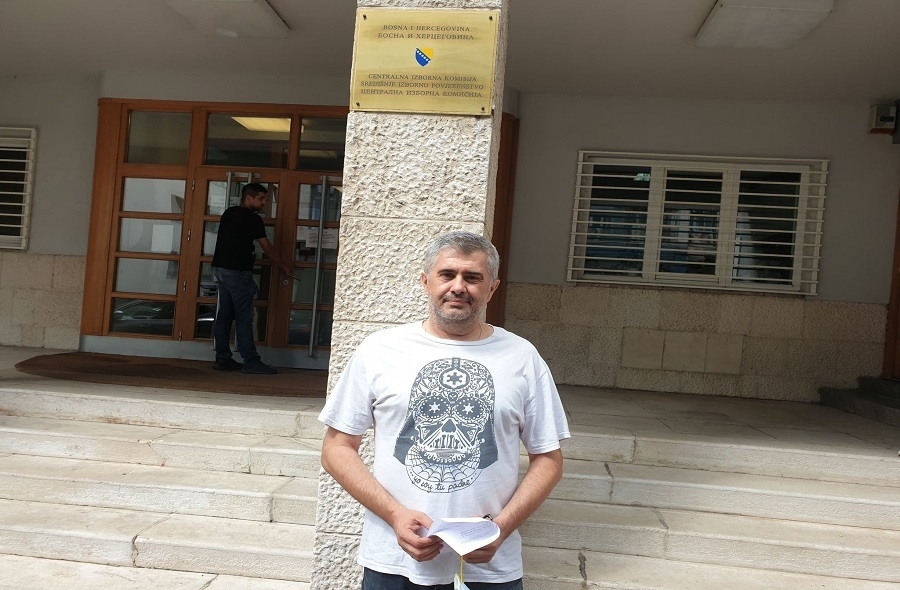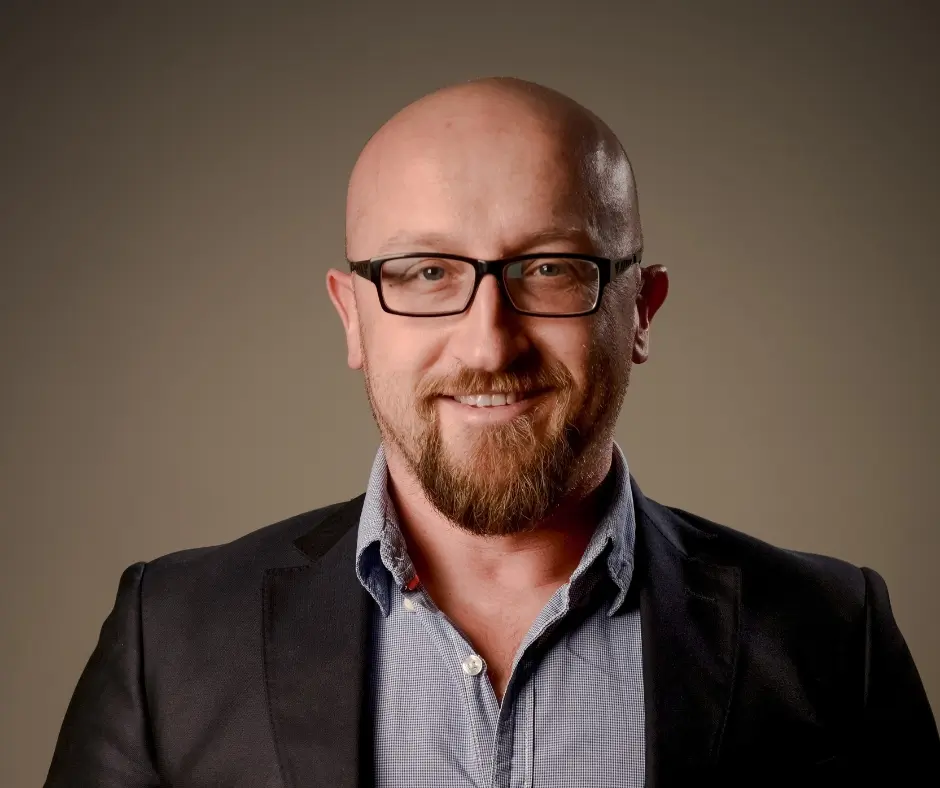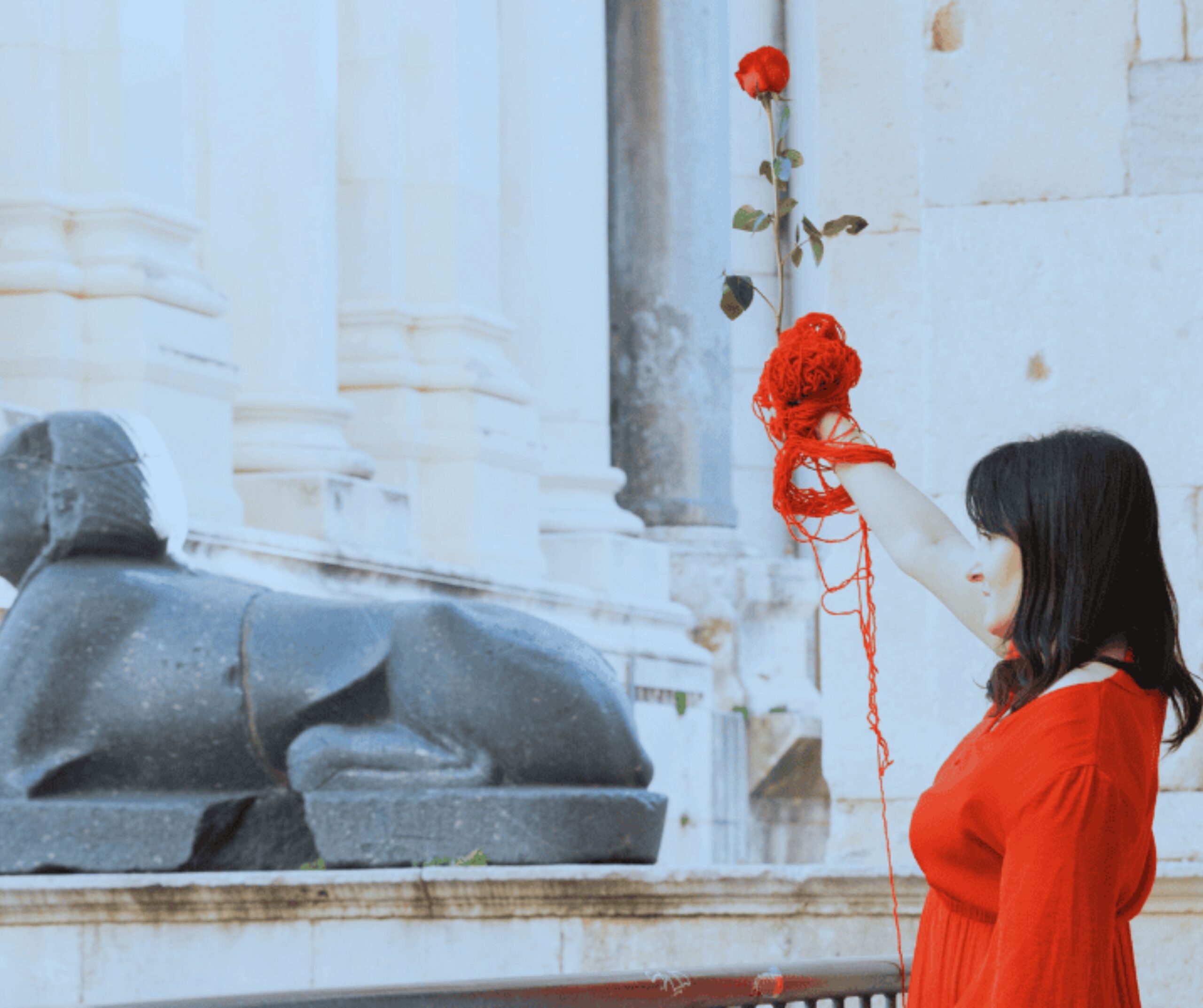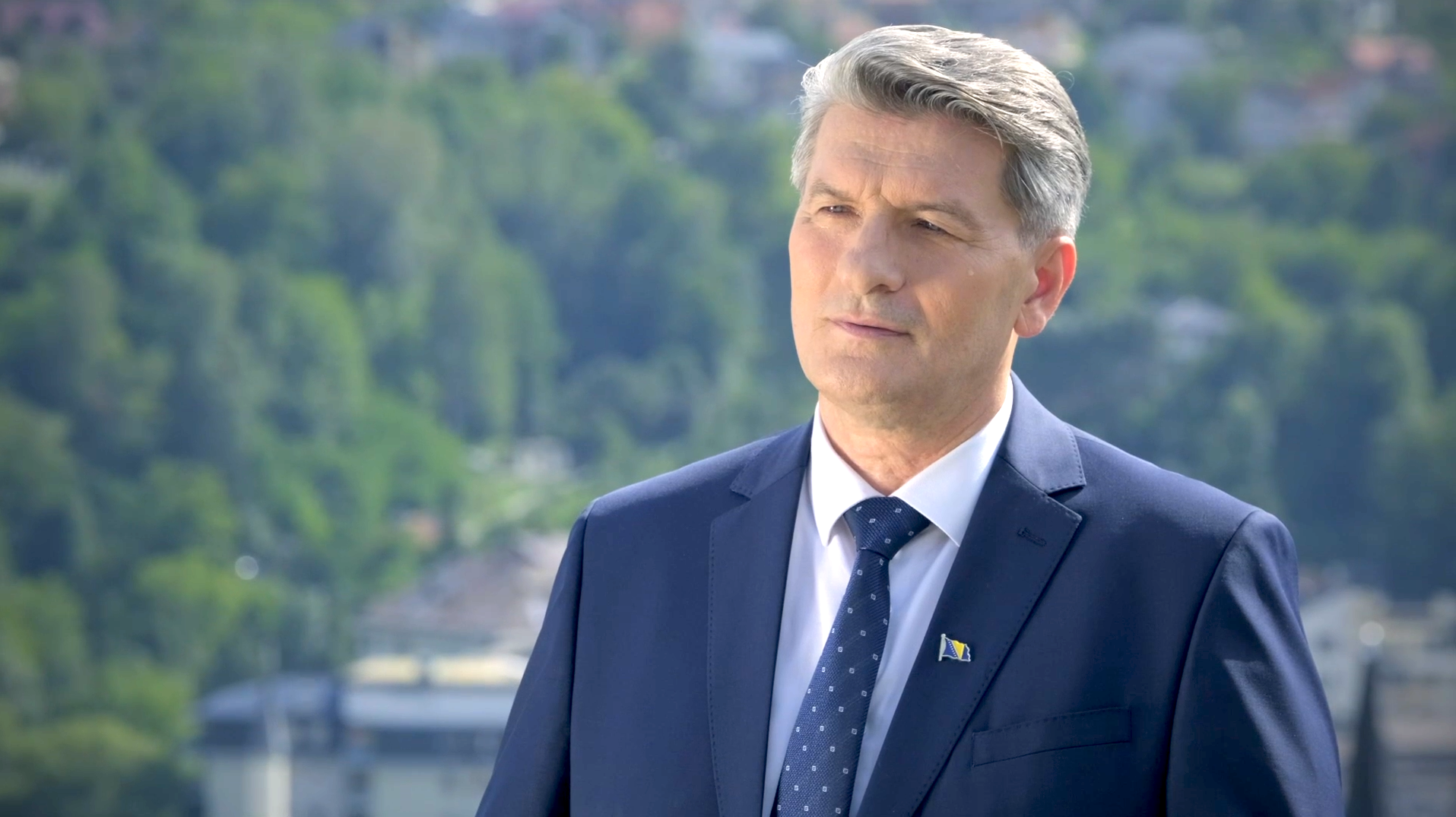Marin Bago, a prominent activist from Mostar, submitted the list of independent candidates “Pravo na Grad” [“Right to the City”] for the Local Elections in Mostar, planned to be held on 20 December 2020, to the Central Electoral Commission (CEC) today. His Association for the Improvement of the Quality of Life ”FUTURA“ has been pointing out numerous problems in the City of Mostar for years, from the wastewater collector, sludge from the sewage treatment plant, to irregularities in tenders and public procurement. All those things have influenced him and the people he works with to offer a new kind of perspective for Mostar. He spoke to Interview.ba about the reasons why he decided to run as a candidate, how much independent candidates have been disadvantaged by the short deadlines just in the case of this city, how Mostar should be like, whom a political agreement between the SDA (Party of Democratic Action) and the HDZ (Croatian Democratic Union) befits, and whether he is afraid of electoral fraud.
INTERVIEW.BA: Why have you decided to run as an independent candidate at the first Local Elections in Mostar after 12 years?
BAGO: I have caught myself telling my older son to leave this country. It was a parental assessment full of love and there is no lie there. When you are telling your own child to leave, then it is a clear signal that you either should go with him or stay here and do something. That was my personal turning point.
INTERVIEW.BA: How hard was the decision to move from the world of activism to the political world, in which people in BiH are usually badmouthed?
BAGO: Mostar is losing its energy, hope, and anyone who loves the city and who understands what it means for the developments of the Herzegovina and Bosnia, has to do something. It is not popular to be a politician. But, we are not politicians anyway. The Administration of the City of Mostar is obliged to make public documents available to a city councillor, and that will provide us momentum. We have lost a lot of energy asking for documents. It would make our work easier and secure a position where we could discuss the development of the city. I believe that it is worthwhile to get engaged additionally for that. It would be ideal if civil society associations would be in the City Council, which would indicate that the local community is developed. Just imagine that associations of parents, business people, and tourism professionals are represented there… That would mean that people who wish to do something, who are able to do so and know how, are in the City Council.
INTERVIEW.BA: The “political agreement“ on holding elections in Mostar was reached in June of this year. Numerous experts believe that it suits nationalist parties the best. How do you comment on the agreement between the SDA and the HDZ?
BAGO: It is clear that this is an agreement of the parties, and it is lamentable that the international public has been tricked and that they supported them while they signed those party agreements. The electoral rules, the constituencies, exclusively suit the HDZ and the SDA. Thus, it is very difficult for someone who is independent to achieve something. But, it all depends on the turnout again. If the turnout is under 50 per cent, it will be quite easy to seize power for nationalist parties, they can even have a majority of 2/3, and then they will be able to do whatever they want. We hope that we will stop them in that. We have nothing against the parties, but we certainly do against bad people who do not understand the laws, the citizens, who do not love the city, and if a person does not love the city, then s/he does not want to develop it either, s/he is only there to profit on a personal level. We are against people like that.
INTERVIEW.BA: How have the short application deadlines in the case of Mostar affected independent candidates, compared to other cities in BiH?
BAGO: All other cities and municipalities in BiH had around 40 days to gather signatures, to present themselves to the public, and in Mostar we had 8 days for all of that. We did not complain much as only we were disadvantaged by that, all other parties were prepared, they have their signatures, membership, but we as independent candidates were all obliged to gather around 200 signatures. We gathered around one thousand in 2-3 days, but we are sorry for the rest, as we were not able to present the programme to the people and invite more people to join the list. We have succeeded to put the four of us on the list, but there could have been 10-15 of us quite easily.
INTERVIEW.BA: How does Mostar look like after 12 years of the blockade of the electoral process?
BAGO: Mostar has been quite ruined as a city because no one took care of anything. There was no love for the city, no desire and will for development, and the citizens are quite crazed. In the past years, almost no one has believed that things could be better. People have lost hope, and that is the worst thing that the political structure can do to its citizens. Problems have accumulated. There are many uncertainties expecting the new City Council. Besides justice and the law returning to Mostar, there are many problems waiting to be solved, so that it will not be pleasant for anyone sitting in the City Council.
INTERVIEW.BA: Your organisation has done many good things for the citizens. You have pointed out many violations of the law, shortcomings in tenders and public procurements, as well as shortcomings in the work of the public utility company Komunalno Mostar. How much has the budget of the citizens been harmed in all these years?
BAGO: A budget existed. Money was spent, but outside of the legal framework. No one controls the City of Mostar. The Federal Parliament approves to Ljubo Bešlić and his deputy to spend money, but no one asks how? This political elite has simply relaxed and after many years they have started to do what they want. As far as the communal infrastructure is concerned, it has been ruined, the waste dump has lost its permit, companies have been ruined, and there are neither know-how nor will there. And the only good thing there is that we have money. Experts say that according to the norms and standards in the public utility services, Mostar could become the most regulated city in the Balkans in one year. We see an opportunity in that for things to improve. However, they will not be able to improve until other people, individuals, are held responsible for what they have done.
INTERVIEW.BA: How would you like Mostar to look like for your children, as well as the children of other citizens? What is your vision?
BAGO: The city of Mostar indeed has many resources, even more than any other city in BiH, maybe even the region. The biggest quality of this city, which we have neglected, lies precisely in the identities of the peoples living in it. We have reduced those identities in the past 20 years to the level of religious communities and have automatically all just lost. We have to individually strengthen all identities, the Croatian, the Bosniak, and the barely breathing Serbian one alike, but also the identity of the other groups, which has been erased. The point is that all of them are presented together! If we could succeed in that, Mostar could be put back on regional, European and world maps, because there are not many cities in the world that have that. If we do not succeed, Mostar will remain a neglected, sad city people wish to leave. Thus, we have almost suffocated the most valuable thing, and I believe that it must return where it deserves to be, and that is done through sports, culture, and the economy… Mostar is a city of lights, it is a cosmopolitan city, and it cannot be divided. People living in divided cities are not happy and they do not have an opportunity for development. We have to make a decision – are we going to live a decent existence or are we going to keep telling our children to leave?
INTERVIEW.BA: You have conducted numerous studies in Mostar, in which the citizens were involved. What sort of changes do they wish to see, what is bothering them?
BAGO: They mostly indicate public utility services, urban development, proprietary legal relations, a bad attitude towards the economy. We will base our programme on what people are requesting and we hope to succeed in that. We have examined the City budget, we know it by heart and we have seen what sort of opportunities Mostar has, and as we have concluded that there are not many political subjects that love the city, we feel the obligation and duty to be the ones who will deliver the initiatives and opportunities. Some people say that we have entered politics, however, that is another case of not understanding politics, because anyone who deals with public money is also dealing with politics. We have been focusing on public money and consumer policy for years, we have not entered anything now, instead we are where we are and we are going to stay there.
INTERVIEW.BA: Is it realistic to expect drastic changes during the first mandate of the City Mayor and the City Council after years of blockade?
BAGO: Everyone responds to quality ideas. There have been no changes during the last 20 years, but real changes will take place when someone starts to talk about it. That is precisely what we wish to accomplish, discuss the real interests of the citizens, not with empty phrases, but really through problems named by people, by examining the budget and developing into people who are analysing the circumstances, laws, who talk to people, embassies and experts. In the past 12 years, you could not hear any representative of politics say that we needed the airport, just that we had it, but we did not have any flights, and that bothered no one. We will say that it bothers us, that we do want flights because Mostar is the owner of the airport, and the City Council is the place where it will be discussed. If we are not successful, we will work on our economic programme over the next four years anyway.
INTERVIEW.BA: How will we restore people’s trust in the elections?
BAGO: People who like to say about themselves that they are contemplating things, must be aware that party structures have been employing their followers, and now they make up around 30 per cent of the electorate. National parties have 30 per cent of the votes already at the outset. If the turnout is up to 50 per cent, it is clear that they will win; we can see that in the examples from the region. For all dissatisfied people, maybe the information will be of value that those three biggest parties in BiH have around 20 per cent of the support of the total electorate. With 20 per cent of the votes someone can do to us whatever they please? You cannot really be legitimate with 20 per cent of the votes. We will have to secure some legitimacy in Mostar.
INTERVIEW.BA: Are you afraid of electoral fraud?
BAGO: We still have theft at elections, and it is done at the level of tricks with matchsticks. It needs to be prevented at last. The good thing is that the elections will only be held in Mostar. I think that the whole international and media attention will be directed at our city. I believe that there will be less fraud, it will be more difficult, and there will be more observers, which we could not have if the elections would take place at the same time on the territory of the whole country. I think that is a good thing, and the leading parties made a mistake there, they did not count on the law, minimum deadlines, so that Mostar remained special and I believe that it is a good thing.





